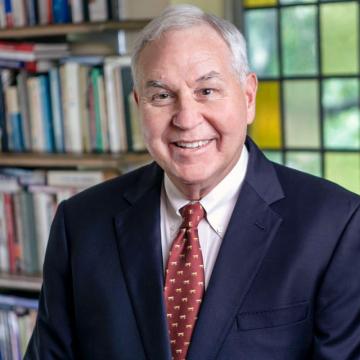The Constitution's blooper reel
Miller Center Senior Fellow Michael Nelson writes in The New York Times about the mistakes of our founding fathers
[Read the full article in The New York Times]
In the course of writing the Constitution, the framers got a lot right, which is why, despite a civil war and any number of political crises, it survives as the longest-lasting written plan of government in the world, at 229 years. Still, in celebrating the document, we also need to be honest: It’s far from perfect.
There are the obvious criticisms over decisions that may have made political sense at the time but aged poorly, like the three-fifths rule for counting enslaved people as part of the population. But there are others that even at the founding can be chalked up only to haste, carelessness, and slapdash craftsmanship.
Take the provision for replacing a disabled president. “What is the extent of the term ‘disability’ and who is to be the judge of it?” asked the Delaware delegate John Dickinson at the Constitutional Convention of 1787. Neither then nor later did the convention address his question. As a result, when Woodrow Wilson suffered an incapacitating stroke in 1919, Vice President Thomas Marshall refused all pleas to take his place. Without any constitutional basis for declaring that the president was unable to function, Marshall said, “I am not going to seize the place and then have Wilson—recovered—come around and say, ‘Get off, you usurper!’”
The delegates also sowed confusion by making a careless error in the clause dealing with premature presidential vacancies. In case a president died, resigned, was impeached and removed, or was unable “to discharge the Powers and Duties of the said Office,” they decided “the Same shall devolve on the Vice President.” But what is the antecedent of “the Same”? Is it the “said Office,” in which case the vice president would become president for the remainder of the four-year term? Or is it the office’s “Powers and Duties,” in which case he’d serve temporarily until a special election could be called?
Most scholars agree that the framers intended the latter: acting president, special election. But they didn’t make that clear, and by the time the first vacancy occurred when William Henry Harrison died a month into his term in 1841, all the framers were dead. Some members of Congress wanted to treat Harrison’s successor, John Tyler, as merely an acting president until a new one could be chosen. Tyler would have none of it. Claiming to be president in every sense of the word, he quickly took the oath of office and even gave an informal Inaugural Address.
The vice presidency itself was the delegates’ third unforced error. The office wasn’t even mentioned until the final two weeks of the four-month-long convention. It came into being as a way to make sure that every member of the Electoral College (another late improvisation) would vote for two people for president with a consequence attached to both votes: The second-place finisher would become vice president. “Such an office as vice-President was not wanted,” wrote the North Carolina delegate Hugh Williamson. The immediate question then became: What would the vice president do?
